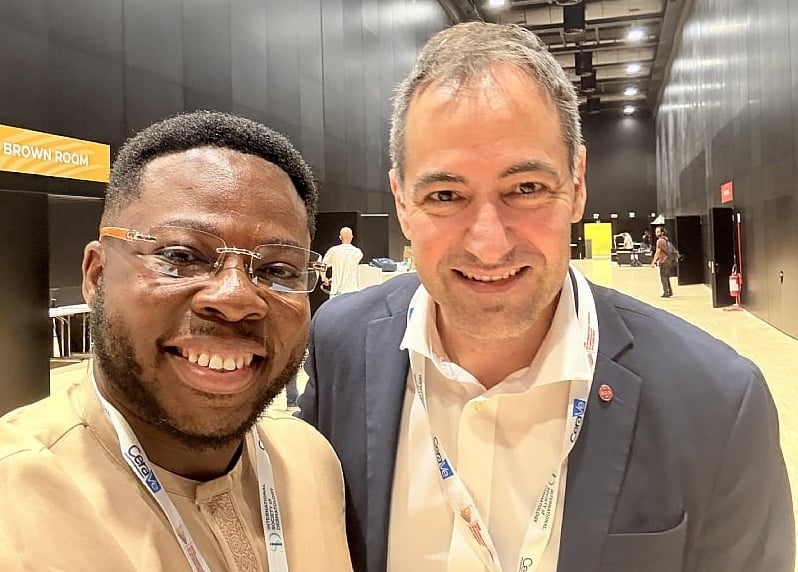In over seven years of clinical dermatology practice across both public and private healthcare settings, I have encountered a consistent pattern: patients with dark skin presenting with recurrent rashes, stubborn pigmentation, treatment-resistant acne, and chronic “eczema” that defies conventional therapies.
The underlying issue? A dermatological world that was never built for melanin-rich skin.
Global dermatology has, for far too long, been shaped by a Eurocentric lens. Textbooks, clinical trials, educational illustrations—even diagnostic criteria—overwhelmingly cater to lighter skin phototypes. The result is a gaping disparity in care. For patients of African, Afro-Caribbean, or South Asian descent, this can mean years of misdiagnosis, ineffective treatment, and psychological distress.
The Invisible Symptoms on Visible Skin
A striking example of this disconnect occurred during a consultation with a teenage boy. He had been treated for “eczema” with topical steroids for over a year—with no relief.
When I examined him, I recognised the subtle hyperpigmented rings on his back not as eczema but as tinea corporis (a common fungal infection). The condition had gone unnoticed because it lacked the classic signs clinicians are taught to recognise—namely redness and scaling—which are often muted or absent on richly pigmented skin. A brief course of antifungals cleared his symptoms entirely.
Conditions such as psoriasis, which appears red and flaky on lighter skin, may present as purple, grey, or even hyperpigmented plaques in darker tones. The hallmark of inflammation—erythema (redness)—is often invisible in deeper skin phototypes. These subtleties can lead to misdiagnoses that cost patients both money and dignity.
Pigmentation: More Than Skin Deep
In Ghana, pigmentation disorders are among the most common dermatological complaints—especially among women. During a recent dialogue at the International Congress of Dermatology in Rome with Dr. Rashmi Sarkar, President of the Pigmentary Disorders Society, we discussed the immense challenge of managing hyperpigmentation in skin of colour.
From post-inflammatory dark marks after acne to melasma and uneven skin tone, pigmentation is not a mere cosmetic issue. It is deeply psychosocial—affecting confidence, career advancement, and relationships.
Yet, most treatment protocols stem from research on fair-skinned populations and are ill-suited to African skin. Aggressive use of lasers, peels, and retinoids may cause paradoxical darkening or scarring when applied without context-sensitive expertise.
The Bleaching Crisis: A Symptom of Medical Neglect
The widespread use of skin-lightening products in Ghana and across Africa is often dismissed as vanity. But this view overlooks a critical reality: many individuals use these products in an attempt to “treat” skin conditions they don’t fully understand—acne, rashes, pigmentation. With little access to dermatological care and minimal public education, harmful agents such as mercury, hydroquinone, and potent steroids become desperate measures.
This is not merely a beauty concern. It is a public health crisis rooted in gaps in education, access, and evidence-based care.
Africa: The New Vanguard of Skin of Colour Dermatology
Africa holds the potential to become the global epicentre of excellence in managing skin of colour. We are home to the world’s largest population of melanin-rich individuals—and with this comes both the responsibility and opportunity to lead. Here’s how we can do it:
1. Develop a Melanin-Rich Image Atlas
We must create a comprehensive digital and physical repository of skin conditions as they appear in African populations. This visual bank will revolutionise medical training, empowering clinicians worldwide to accurately recognise and treat diverse presentations.
2. Redesign Our Medical Curriculum
Our universities must adopt dermatology teaching tailored to the realities of African skin. Exams and clinical exposure should reflect the actual patient demographics—not imported Western case studies. Students must learn to diagnose erythema that isn’t red and rashes that don’t scale.
3. Prioritize Research in Indigenous Therapeutics
Shea butter, African black soap, neem, tamarind, and moringa have long histories in African skin care. With rigorous scientific validation, these natural remedies could form the foundation of a proudly African dermaceutical industry—rooted in tradition, backed by science.
4. Draft Clinical Guidelines for Dark Skin
National dermatology societies across Africa should lead in developing standardised protocols that reflect our unique climate, socioeconomic realities, and genetic profiles. Treatment strategies from Europe or North America often fail here—not because they’re flawed, but because they’re contextually misaligned.
5. Leverage Media for Skin Health Education
Let’s move beyond skin shaming and sensationalism in the media. Through public campaigns such as #MyMelaninMyPride and #SpotTheRealSkinIssue, we can destigmatise common conditions like acne, vitiligo, and keloids while educating millions on prevention and care.
Conclusion: Skin is Not Just a Shade—It’s a Science
As a passionate advocate for skin of colour dermatology and founder of The Skin Messiah Initiative, I firmly believe that representation in dermatology isn’t optional—it’s essential. Our skin does not only differ in hue but in physiology, response to treatment, and healing patterns. These differences must be embraced and respected in science, policy, and practice.
If the global dermatology establishment continues to lag behind, Africa must chart its own path—setting new standards, publishing new data, and raising a new generation of skin-literate clinicians and consumers.
Because our melanin is not a complication. It is a distinction. And it deserves care rooted in precision, cultural competence, and pride.
Dr. (Med.) Kofi Brifo is a Ghanaian Consultant Dermatologist with a Master’s degree in Dermatology (UK), an international speaker, a member of the European Academy of Dermatology and Venereology (EADV) and the International Society of Dermatology (ISD) and the founder of The Skin Messiah Initiative. He is an advocate for skin of colour education, research equity, and pan-African leadership in dermatological excellence.


